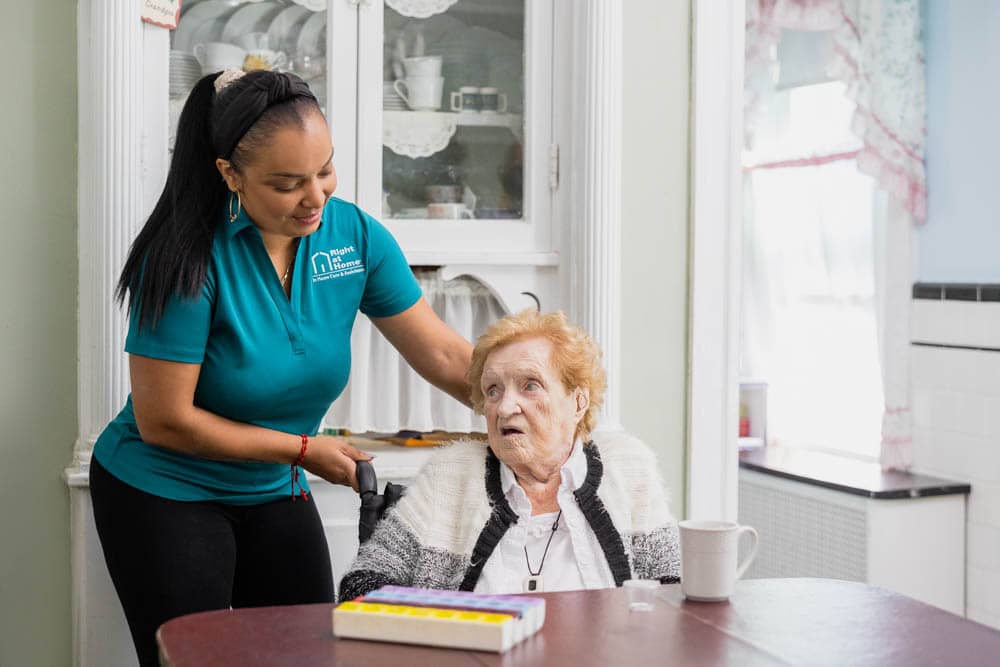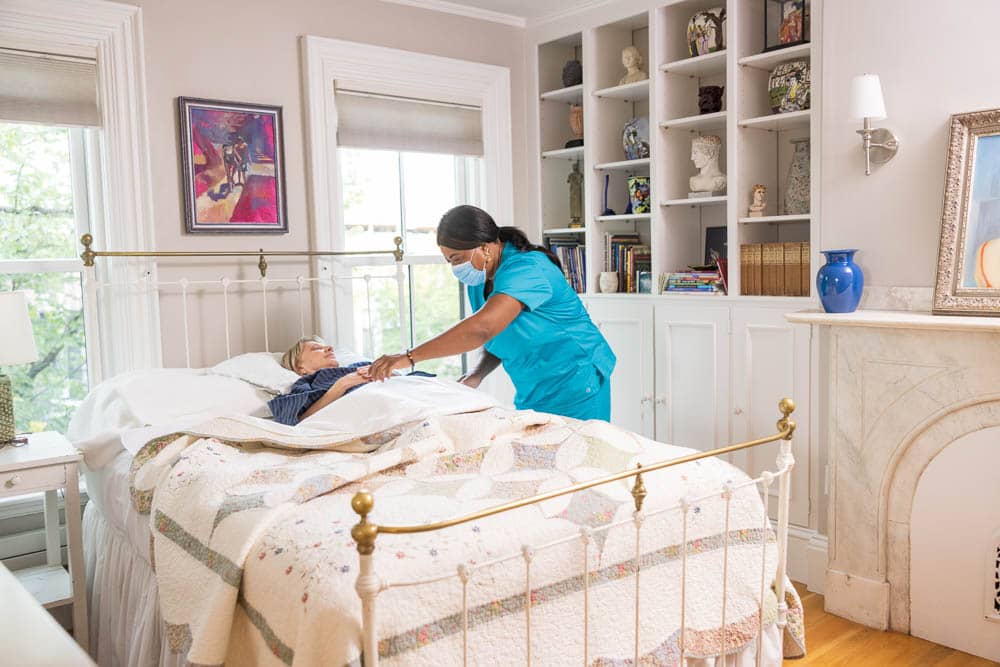

Paying for In-Home Care
Private Pay


Long-Term Care Insurance
A long-term care insurance policy can be a great option to help pay for home care, as the policy can provide a set dollar amount available to fund care on a daily/weekly/annual basis. If you're not sure whether your loved one has a long-term care insurance policy, ask them or check records for a copy of the policy or a history of payments to an insurance company.
Collecting benefits from your long-term care insurance policy can be daunting if you're not familiar with the process. Right at Home has partnered with the American Association for Long-Term Care Insurance to develop free tips to help clients access their long-term care insurance benefits as quickly and easily as possible.


Long-Term Care Benefit Plan
A long-term care benefit plan is the conversion of an in-force life insurance policy into an irrevocable, FDIC-insured benefit account. An unneeded life insurance policy is sold for a percentage of the death benefit (the range can be between 20% and 60%) and the funds are immediately available to pay for senior care.
Once enrolled in the benefit plan, tax-advantaged monthly payments are made directly from the account to cover any form of senior care: home care, assisted living, nursing home, memory care, and hospice.


Reverse Mortgage
A reverse mortgage is a loan that enables senior homeowners, age 62 and older, to convert part of their home equity (primary residence only) into tax-free income without having to sell their home, give up title to it, or make monthly mortgage payments.
You don’t need to repay the loan as long as you or another borrower continues to live in the house and keep the taxes paid and insurance in force. The loan only becomes due when the last borrower permanently leaves the home, at which time the reverse mortgage principal, interest charges, closing costs and service fees are typically paid back from the sale of the house.


Viatical Settlements


Senior Living Loans


Veterans Aid and Attendance (A&A)
Veterans and their surviving spouses who require the regular aid and attendance of another person for activities of daily living, such as bathing, dressing, medication monitoring, etc., may qualify for a special Aid and Attendance (A&A) benefit, in addition to their monthly pension. This benefit is available to honorably discharged veterans and their surviving spouses who meet eligibility criteria. Assets are included in the equation for eligibility, with exclusions for personal property such as the veteran’s home or vehicle. For additional A&A benefit information, visit the U.S. Department of Veterans Affairs website.


Genworth Cost of Care 2020 Survey
For years, Genworth has helped the aging population navigate caregiving options and compare costs. Below is a breakdown of types of care and their costs.
| Care Type | National Average Cost |
|---|---|
|
Adult Day Care |
** $ 1,603 per Month |
|
Assisted Living |
** $ 4,300 per Month |
|
Nursing Home |
** $ 8,821 per Month |
|
In-Home Care |
* $ 4,074 per Month |
* Based on annual rate divided by 12 months (assumes 40 hours per week)
** Based on annual rate divided by 12 months


At Right at Home Grand Island We Offer An Affordable Alternative to Assisted Living and Nursing Homes
Assisted Living in Nebraska
According to the 2015 Genworth Financial cost of care survey, the average cost of assisted living in Nebraska is $3,628 per month. The monthly base rate for Nebraska assisted living is typically average when compared to neighboring states. Nebraska is also more expensive compared to the national average. Keep in mind this survey was back in 2015 so costs have more than likely gone up more since.
Nursing Homes in Nebraska
There are approximately 291 nursing home facilities in Nebraska. According to information published by Medicare, the average cost of nursing home facilities in Nebraska is $69,076 yearly. That’s the average with some being more and some being a little less. These costs could range all the way up to $11,430 per month. The nationwide average cost for all states is approximately $6,360 per month
Personalized In-Home Care
The average client we serve signs up for approximately 15-20 hours of one on one care each week. It’s important to stress the value of one on one care from someone who is hand picked to meet our clients needs. We provide many services and our in-home Caregivers are trained to handle the needs of your loved ones. We will create a custom care plan specifically for your loved one based on a thorough needs assessment. As your loved one receives care, we will stay in contact with you, keeping you updated on the care we are providing and how your loved one is doing.
No Minimum Weekly Hour Requirements
While we must have at least 2 consecutive hours scheduled per day, we have no minimum weekly hour requirement. We can provide anywhere from 2 to 24 hours of care each day. If we use our 15-20 hours a week client average, home care can range anywhere between $420-$560/week, and only an additional $6/hr for couples care. Whether a family member needs a little extra help around the house, assistance recovering from a hospital stay or someone to check in on them throughout the week, Right at Home Norfolk can be the perfect solution.



